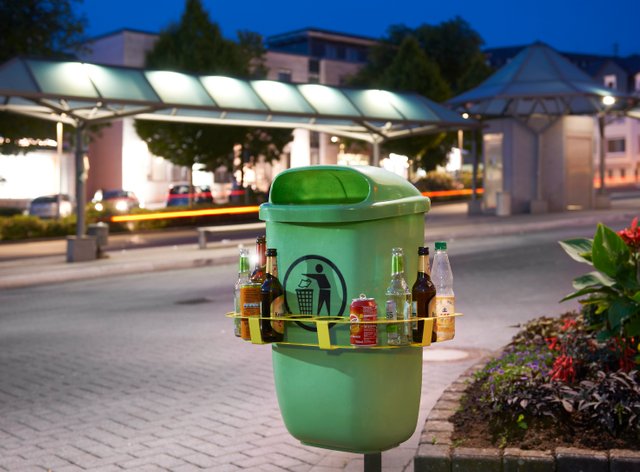Pfand’ers: The Bottle Hoarders
“Put it under the bin”, I heard as I walked over to the familiar orange trash can you can find at almost any street corner in Berlin.
Pfand is a tax on plastics and glass that you’ll find listed under each listing at any place of shopping.
We’re familiar with the concept back home in the States when we receive money if we choose to recycle (based on certain states). However, pfand is paid up-front which means a can of Coke which may only cost you roughly 0.50 € is actually more like 1.50 € due to the pfand.
The idea behind this cost is simple: Germany is very big on recycling.
In the supermarket you will find machines that automate the process of recycling. You insert a bottle, it scans it, and then adds credit to your action. You will see people lined up with massive bags full of plastic & glass bottles.
This, at its core, creates a form of loyalty to a supermarket as many do not accept plastic and glass from competitors (Lidl, for example, will only accept returns if you’ve bought through them, though certain bottles and recyclables can be done anywhere depending on the brand being sold in store). Those frequenting their local supermarket will nearly always bring bottles back before they start shopping.
But it goes deeper …
The pfand creates an incentive for individuals to actively recycle plastic and glass bottles in comparison to the States where it’s seen as a good deed. Furthermore, there is an entire sub-culture built around the pfand which can be seen by those running circles around the block, events, and outside of clubs seeking derelict bottles.
One such example I recently experienced was during the gigantic 3-day festival called Karneval. The party brings in an enormous amount of individuals from around the world which can see the crowd surge upward of 200,000+ attendees. Of course, vendors apply pfand to the glasses they use for their make-shift bars or to bottles individuals walk off with; the result is that the streets are littered with bottles on all corners (broken and orderly placed).
Dozens of individuals wander through the crowd with carts, travel luggage, and bags from the major supermarkets to collect bottles. In one instance I found a group of individuals hoarding their collection within a park which appeared to be nearly 1,000+ bottles.
But … this isn’t like your normal “homeless” activity.

Image via http://blogs.dw.com/generationchange/tag/cologne/
It’s common to see individuals, in the States, digging through trash cans for aluminum cans, bottles, and plastic to return for a bit of money. We generally associate this action with those that are living on the street but the different, in this situation, is that everyone does it. You can see an executive take the extra time to pick up a bottle to throw in their pack on the way to the office because they know they have a small collection back home which they’ll take next time they’re out at the market.
In all, as a foreigner, this extra “tax” is somewhat shocking especially when you’re not adjusted to reading the fine print, but it makes perfect sense. You create a culture where individuals are active in the recycling process and it generates an opportunity for those down on their luck to make an ample amount of money throughout the day (I’ve been told some individuals easily earning 50 € or more since they treat it like their job).
It’s something I’d love to see back home.
Welcome to Berlin. @flauschi
Hi. I am a volunteer bot for @resteembot that upvoted you.
Your post was chosen at random, as part of the advertisment campaign for @resteembot.
@resteembot is meant to help minnows get noticed by re-steeming their posts
Even better: If your reputation is lower than 28 re-steeming only costs 0.001 SBD!
If you want to learn more - read the introduction post of @resteembot.
If you want help spread the word - read the advertisment reqruiting post.